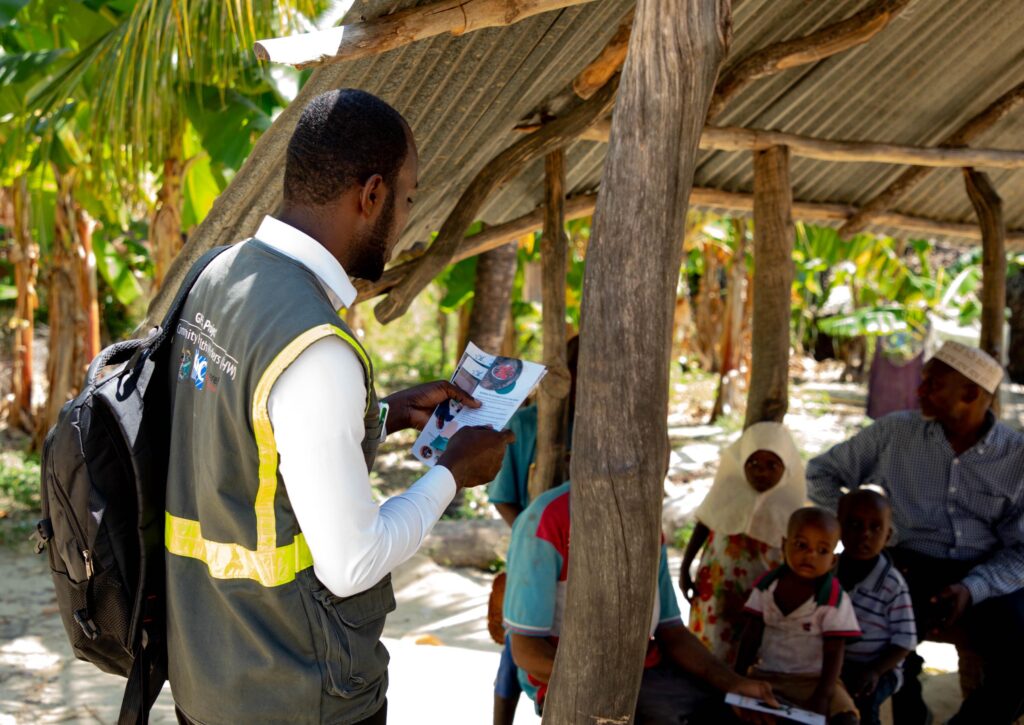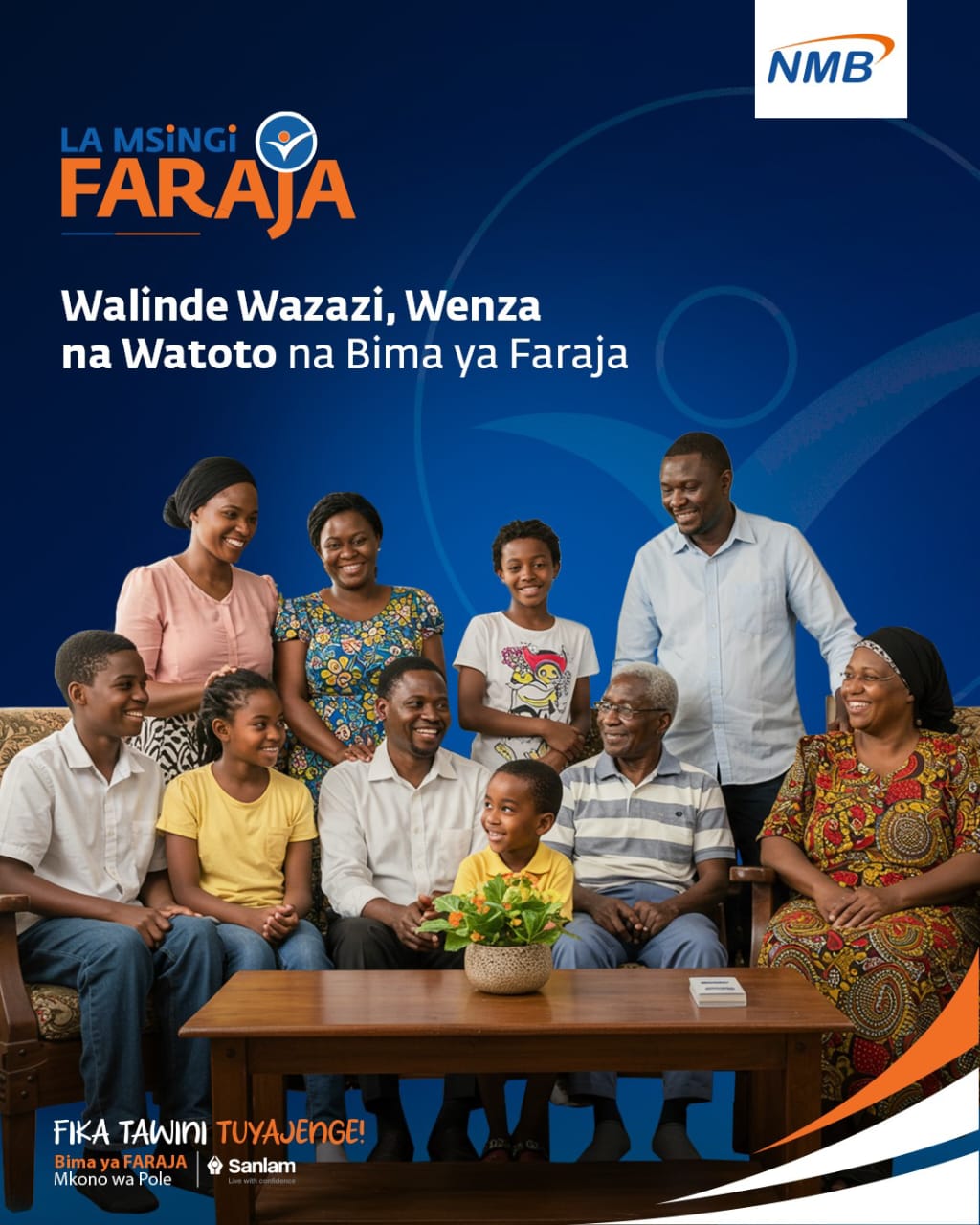When residents of Kisiwa Panza, a remote island in Pemba, Zanzibar, began falling gravely ill in early March 2024, it wasn’t a doctor or a government official who first raised the alarm. It was Haroub Makame, a newly trained Community Health Worker (CHW), who spotted a troubling pattern: vomiting, diarrhoea, and sudden deaths, all linked to the same household.
“On 3 March, I raised an alert about five suspected cases and two deaths,” he recalled. “I reported it to the health centre.”
That swift action triggered a life-saving chain of events, from local health authorities to national emergency teams, and ultimately prevented a devastating outbreak from spiralling out of control.

Just one month before the incident, Haroub had undergone training under the Global Health Security Agenda (GHSA) Project, implemented by Amref Health Africa inTanzania with funding from the U.S. Centers for Disease Control and Prevention (CDC). His training focused on outbreak detection, community-based surveillance, and health risk communication, skills that would soon prove vital.
“After the outbreak, I educated the community on prevention,” Haroub said. “I told them not to eat turtle meat or any meat not approved by health professionals.”
In remote communities like Panza Island, CHWs are not only health messengers, but are also embedded protectors. Their proximity to the people, coupled with trust earned over time, positions them as the first and sometimes only line of defence.
“I live with them, we are one community,” Haroub shared. “That’s why they inform me quickly, and I understand their challenges.”

Upon receiving Haroub’s alert, Tano Faki, head nurse at Kisiwa Panza Health Centre, rushed to the scene. The situation was grim: two children had already died, and more were in critical condition. Swiftly, emergency referrals were initiated, and a temporary treatment centre was set up to stabilise patients and reassure the community.
The Zanzibar Public Health Emergency Operation Centre (ZPHEOC) activated its response protocol. Bakar Khamis, the Pemba coordinator, led a multi-sectoral team comprising health professionals, veterinarians, environmental officers, and risk communicators.
“We received the alert on 4 March and deployed a team immediately,” said Bakar. “Thanks to the early report, we contained the outbreak swiftly using a One Health approach.”
The outbreak was traced back to contaminated sea turtle meat, which had been consumed at a local gathering. Of 257 people exposed, 167 fell ill and nine tragically lost their lives. Lab results confirmed the presence of natural toxins common in certain turtle species, particularly dangerous when consumed.

Beyond treatment, the response team launched a public awareness campaign warning against the consumption of unregulated meat, especially from marine wildlife. This holistic strategy, rooted in the One Health framework, acknowledged the intertwined nature of human, animal, and environmental health.
“This case shows that event-based surveillance at the community level is key to detecting threats early,” noted Bakar. “CHWs help us act before a situation becomes unmanageable.”
The GHSA Project, running from 2020 to 2025, is helping Tanzania strengthen its frontline health defence through enhanced surveillance, CHW training, and improved reporting tools. It focuses particularly on border and hard-to-reach regions, where early warnings can mean the difference between control and catastrophe.
Haroub’s experience is a testament to the power of investing in local solutions. Despite his modest circumstances, he embodies the courage and commitment needed to keep communities safe.
“Even with my own family to care for, I always respond when health issues arise,” he said. “The community trusts me. We work together.”
In a world facing ever-evolving public health threats, heroes like Haroub may not wear lab coats, but they carry notebooks, walk for miles, and save lives with every alert they raise.





